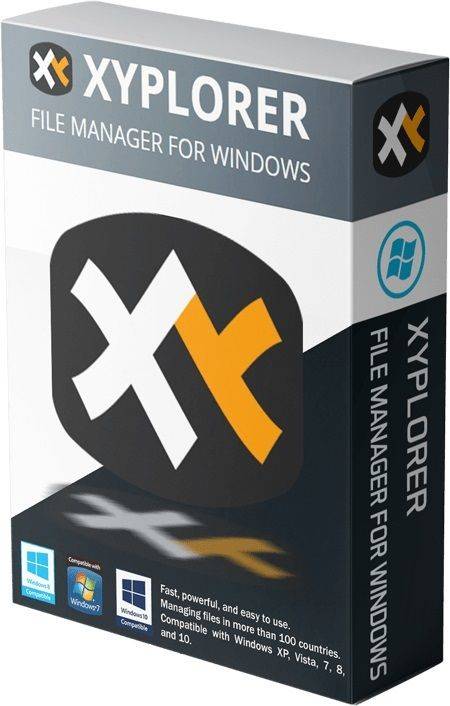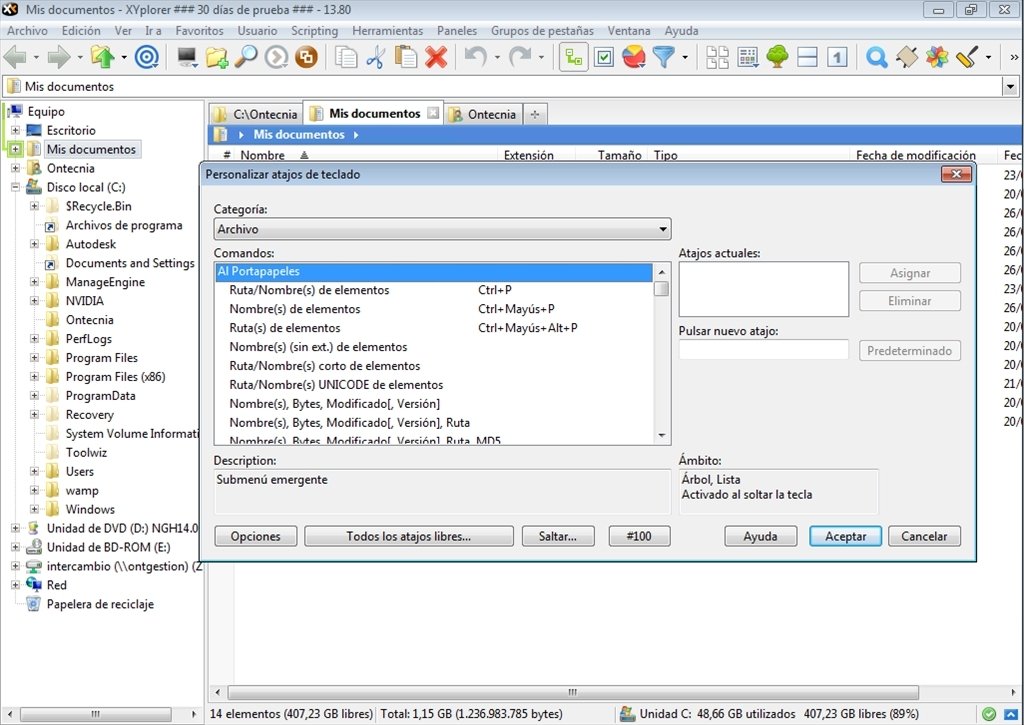

The interface of XYplorer is customisable. The dual-pane mode can be set either horizontal or vertical according to which mode you are more comfortable to work in. On each pane, you can open multiple tabs for even easier navigation.

XYplorer is a dual-pane file manager, but you don’t have to always working in a dual-pane mode.

One of the standout features of XYplorer is navigation. XYplorer is a feature-rich file manager for Windows that is great for an advanced file management. Common shortcuts like Ctrl+C, Ctrl+V, Ctrl+F also apply on XYplorer. It also supports contextual menu just like File Explorer, allowing you to access menus and perform certain operations easier way. Once installed, XYplorer will be well-integrated with the Windows system. XYplorer itself has been around for almost 2 decades as it was initially released in 1999.

The developer of this tool has just released the latest version of XYplorer (version 19.60) in last January 30. It also runs seamlessly on Windows Server. XYplorer is compatible with all Windows versions, including the ancient Windows XP. It has plenty other features that File Explorer doesn’t have one. Tabbed browsing is just one example of the XYplorer features. You can use it to replace File Explorer in case you need more advanced features to manage your files. What if you have to copy lots of files from different sources? Wouldn’t it be much easier if you could switch between tabs in file manager? XYplorer is a great file manager to handle such task since it allows you to open multiple tabs in a single window. If you only copy the files once, then there is no problem with that. The problem even gets more complicated if the source and destination lie deep in sub folders. Windows users have to go back and forth from one folder to another to copy a lot of files, which certainly involve lots of mouse clicks as well. The major downside of File Explorer is that it doesn’t support tabbed browsing. However, the default file manager offered by operating systems often comes lack of features. In Windows, you have File Explorer (formerly known as Windows Explorer). All modern operating systems already features a default file manager to help users to manage files. Working with file manager has been a part of the habit of computer users.


 0 kommentar(er)
0 kommentar(er)
